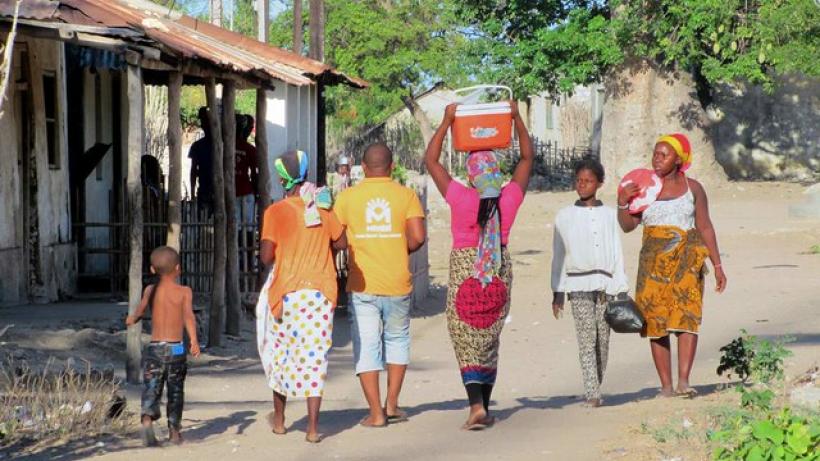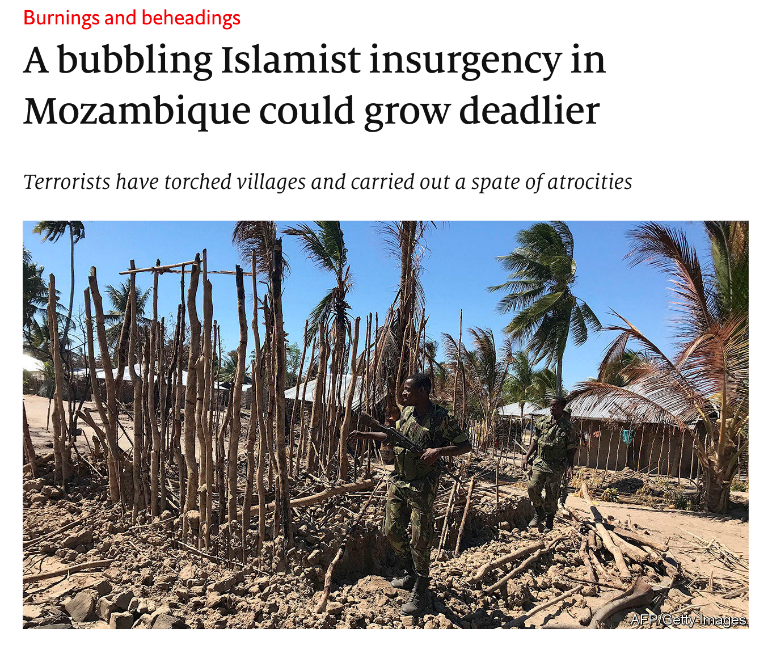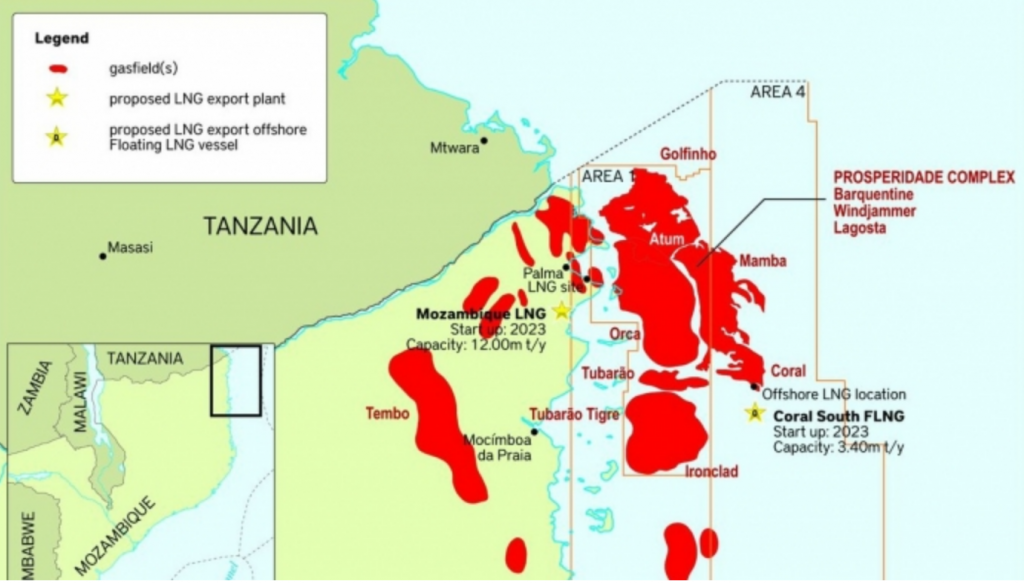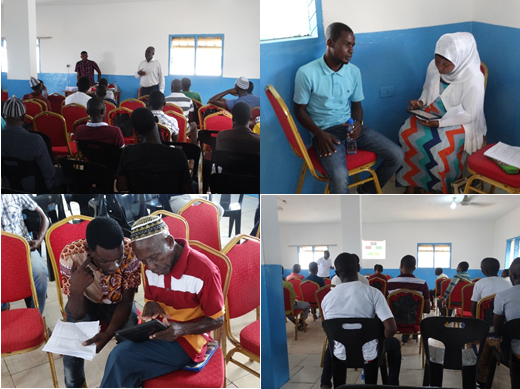
Increasing religious awareness and professional training
The discovery of natural gas triggered violent extremism in Northern Mozambique. Could religious awareness and professional training quell violence?
 Figure 1: The Economist, Aug 9th 2018.
Figure 1: The Economist, Aug 9th 2018.
There is vast economic and political science literature on conflict and civil wars, which mostly focuses on the determinants of the outbreak and duration of conflicts. In deciphering the motivation for conflict, it usually distinguishes between (lack of) economic opportunity and grievance. The generalised consensus is that economic variables are highly correlated with (and even affect) the outbreak of conflict (e.g. Blattmann & Miguel, 2010).
The literature on the determinants of terrorism is not as clear and the evidence on the motivations to support terrorism is mixed. What has been observed is that the use of military force has a limited role in prevention in the early stages of radicalisation. Accordingly, modern counter-terrorism strategies aim instead to counter extremist ideology and propaganda.
In a recent study, we look at the role of religion and employment in the fight against radicalisation in Cabo Delgado, Mozambique. We aim to contribute to understanding the motivations and policy interventions that can reduce the probability of supporting and joining extremist armed groups.
Natural resource discovery and the emergence of violent extremism
Cabo Delgado is one of the poorest provinces in Mozambique and has been in the spotlight since the discovery of vast natural gas deposits in 2010. The discovery is expected to transform the province and the country’s economy. Experts believe the availability of the sought-after resource can place the country as the third-largest exporter of liquefied natural gas globally. The development of onshore facilities have started near Palma, where Anadarko, the lead Mozambique gas development project, has set camp.
 Figure 2: Overview and location of Mozambique LNG Project. Source: BankTrack.
Figure 2: Overview and location of Mozambique LNG Project. Source: BankTrack.
It was in the midst of the natural gas bonanza that the attacks started in October 2017 in Mocímboa da Praia (also shown in the figure). Since then, there have been several forays in rural villages in the Muslim-majority districts in the coast. They have caused several fatalities and might put at risk the gas exploration projects for the region, with firms facing security concerns.
Our previous work in the region, also funded by the International Growth Centre (IGC), showed that there were fewer attacks close to villages that received an information campaign about the discovery of natural gas. Although little is known about the motivations of the group(s), they have been associated with Muslim extremism.
The extremist groups were suspected to recruit members in Pemba (the capital of the Province), where three mosques were closed by the Government after the initial attacks. Although they were initially known as Al-Shabaab (“the Youth”) it seems to have no connections to the Somali group with the same name. Eric Morier-Genoud (2018) believes this is a “local phenomenon with very specific historical and social dynamics.”
The project: Increasing religious awareness and professional training
We study two interventions designed to reduce the support and joining of these violent extremist groups in Cabo Delgado. The interventions are conducted by the Conselho Islâmico de Moçambique (CISLAMO), one of the most important Muslim Authorities in the region. In response to the wave of attacks, they implemented two types of awareness events targeting young male mosque-attendees in Pemba:
- Religious awareness session: It aims to contextualise Sharia law in a secular country and explain how the Muslim tradition does not accept what is called terrorism.
- Professional training session: It aims to increase the employability of participants.
Due to our partnership with CISLAMO, we were able to randomly allocate the original pool of interested participants to one of three groups: Religious awareness, professional training, and a pure control group. In total, more than 250 people participated in one of the sessions, which started on 7 January 2019. All sessions are conducted at CISLAMO’s main office in Pemba.
Project implementation:
- Religious awareness session
The Religious session lasted three hours and was conducted by two well-respected members of CISLAMO, whose solid knowledge of Islam’s teachings was built on several years of studies in the holy city of Medina, Saudi Arabia. Approximately 100 people attended the session. Around 15 people were not part of the sample, attending as representatives of the mosques that were invited to participate.
The main topics and arguments covered in the session were:
- Who are these people in the bush? What is their meaning for Muslims? They are not Muslims, they are “Al Khawarij”, or rebels. As Prophet Muhammad, Sallallahu Alahi Wasalam (S.A.W.), said “My Ummah will be divided into 73 sects. All of them will be in the fire except one.” Hence, the rise of divisions and false followers is known throughout the history of Islam.
- Befriending non-Muslims is not forbidden by Islam Doctrine. And in the Qur’an it is forbidden to offend the religion of others. From the life of the Prophet Muhammad (S.A.W.), there are several examples of cohabitation and agreements with Jews.
- Other topics related to going to hospitals, especially by females who are attended by male doctors; having an ID card with a picture; or the imposition for males to grow a beard.
- Professional training session
The professional training was developed by an entrepreneurship Professor at Colégio Andalúcia in Pemba. Andalúcia is considered one of the best schools in the country and is run by CISLAMO. In addition, one member of the administration of CISLAMO, with established experience with local NGO’s engaged in employability, helped with the session. Approximately 90 people participated in the session.
The main topics covered during the three hour workshop included the following:
- Start your own business: Have an idea and plan; where to get funding; what are the requirements, and what are the simple and standard rules of thumb to maintain a healthy business.
- Not everyone is an entrepreneur: Employment opportunities in the province; who is recruiting and how to have access to the advertisements; how to organise your CV; and what are the skills and characteristics employers are looking for.
- Control session
No training was provided to the control group. There were only measurement activities. 85 people participated in the control session.
 Figure 3: Different moments of the sessions.
Figure 3: Different moments of the sessions.
Monitoring and evaluation: The next steps
The measurement is expected to be concluded by mid-March 2019, with field activities taking place as we write this blog post. Due to the sensitive nature of the topic, we are implementing other behavioural measurements to complement the standard survey questionnaire. This includes a list experiment and lab games. In this way we hope to capture subtle changes in support of extremist ideology, which would be difficult to observe from self-reported survey answers.
If you are interested, stay tuned on IGC blog. We will share preliminary results in the next few months. We are convinced of the importance of policy-makers and agencies being informed of the impact of such campaigns. We hope to help in designing evidence-based solutions that reduce the threat of extremism in a peaceful and inclusive way.
References
Armand, A, Coutts, A, Vicente, P C and Vilela, I (2019). Does Information Break the Political Resource Curse? Experimental Evidence from Mozambique, Working Paper No 1902, Nova School of Business and Economics, Universidade Nova de Lisboa. Accessible: https://novafrica.org/research/does-information-break-the-political-resource-curse-experimental-evidence-from-mozambique/
Blattman, C and Miguel, E (2010). “Civil war”, Journal of Economic literature, 48(1), 3-57. Accessible: https://www.aeaweb.org/articles?id=10.1257/jel.48.1.3
Bowker, T (2018). Cabo Delgado attacks threaten gas developments, The Petroleum Economist. Accessible: https://www.petroleum-economist.com/articles/upstream/exploration-production/2018/cabo-delgado-attacks-threaten-gas-developments
Morier-Genoud, E (2018). Mozambique’s own version of Boko Haram is tightening its deadly grip, Independent. Accessible: https://www.independent.co.uk/news/world/politics/mozambique-cabo-delgado-boko-haram-islamist-extremism-africa-guerrilla-movement-a8397111.html

